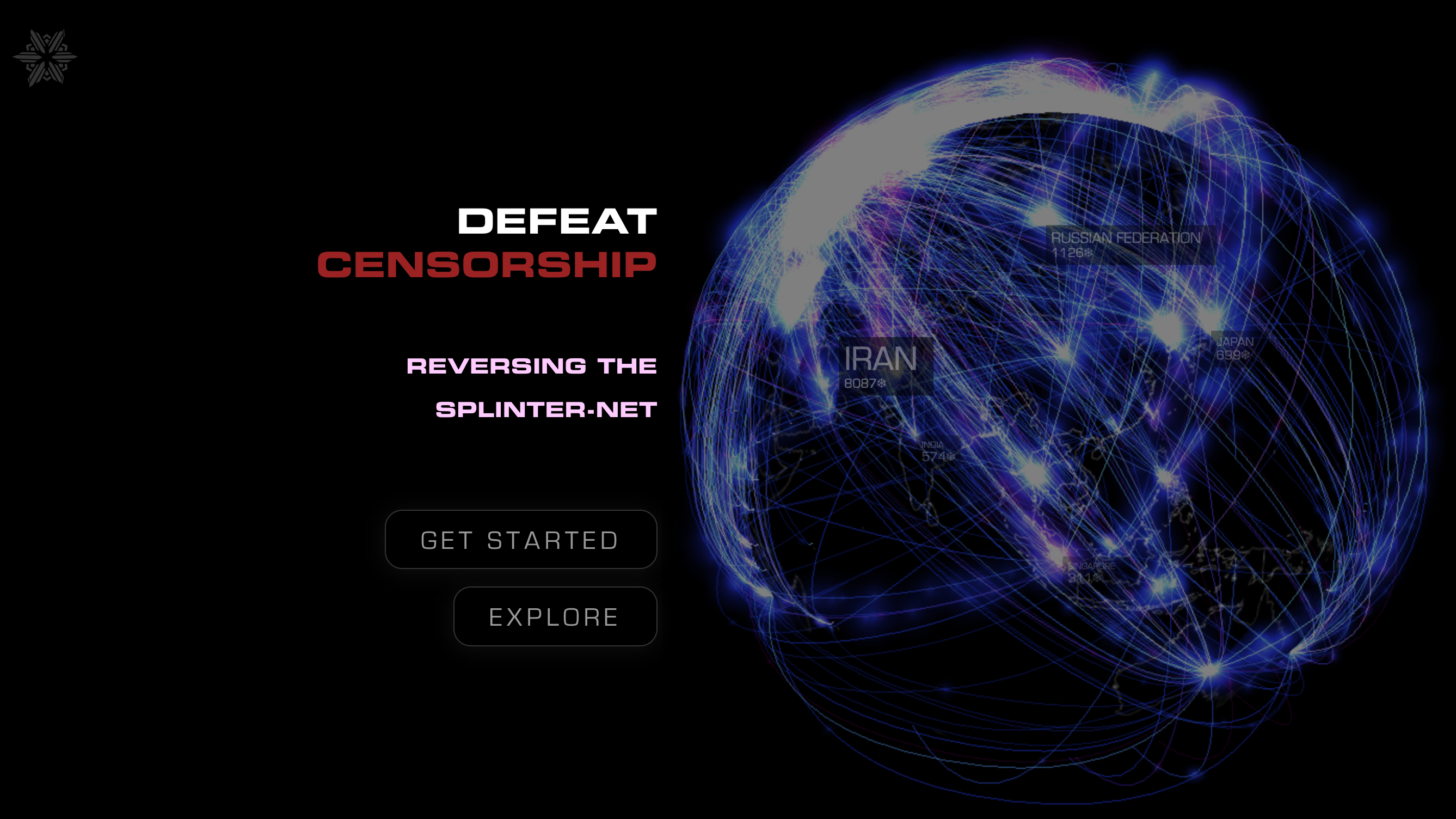Snowstorm: the bridge to reconnect a splintering web
The upgraded version of Snowflake gets where VPNs cannot

Sign up for breaking news, reviews, opinion, top tech deals, and more.
You are now subscribed
Your newsletter sign-up was successful
What do music and coding have in common? Probably nothing, most people would say.
That’s not what the mononymic Serene thinks, both a professional concert pianist and security software developer who has eschewed her family name to protect her privacy. "It seems counterintuitive to many, but coding and music feel like the same activity for me," she says.
"You can think about music as a kind of architectural sound that moves through time, and you can think of code and computers as architecture that moves through logic. And when I do a lot of music, it actually makes my coding better."
Alongside playing around the world as a Bösendorfer-endorsed pianist, she has recently launched a new anti-censorship tool. Still in beta version at the time of writing, Snowstorm is a decentralized and open-source proxy network able to provide a gateway to the open internet.
Snowstorm is the evolution of Snowflake, software that Serene developed seven years ago together with Arlo Breault and David Fifield, and then released via the Tor browser. It promises to be faster, fully generalized, and with more features than its predecessor.
Decentralized privacy without Tor
As new conflicts and protests have been exacerbating censorship on the net lately, the use of circumventing tools like VPN services has soared. The problem is that authorities know that, and are extremely active in their attempts to thwart them.
This has led to more and more people opting for Snowflake instead - too many, in fact, and the massive number of users saturated its legacy network. That’s why Serene decided that it was about time to go back to that project.
"The original Snowflake was just a prototype and I hoped it would be useful someday, but it wasn't built fully in a robust production-level engineered system that now seems necessary because of the drastically increased demand," Serene told TechRadar.
The idea behind is always the same, though: allowing people in uncensored areas to create a bridge between the restricted and open internet, allowing users to bypass censorship. In this way, "the internet is helping itself," explained Serene.
Fully rewritten using Rust, Snowstorm differs from Snowflake as it exists as standalone software outside Tor. Once fully up and running, it will be available as a dedicated app for Mac, Windows and Linux.
That's advantageous as the anonymous browser is actually banned in some countries.
Even better, Snowstorm seems fast enough to stream high quality videos, something unthinkable for its Tor-only counterpart.
Like Snowflake, Snowstorm uses WebRTC to create a connection between the network of volunteer-run proxies and users looking to escape censorship. Being a protocol generally used for establishing peer-to-peer connections, it's more difficult to block than standard VPNs as it makes traffic look like normal video chat communications.
"Most of the tools out there described themselves as privacy tools. That's great as we need privacy tools, but what Snowstorm is doing in that domain is the step before. It's focusing on access which is the prerequisite before we can have privacy," she said.
Serene started to get familiar with WebRTC technology while she was working for Google. Starting at an early age, she quickly became the first engineer at Google Ideas (now Jigsaw), a dedicated team focused on developing tech solutions to support people around the world in their fight against cyberattacks, censorship and privacy breaches.
She then decided to leave the Big Tech giant for being able to focus on open-source software, while cultivating her career as a professional musician.

"I have always cared about Internet freedom, even since I was very little. The Internet was very important in my formative years," said Serene, who actually used this new source of knowledge to teach herself coding when she was just nine years old.
In 2022, over half of the world's population suffered internet disruptions. This number is only likely to increase as even democratic governments are busy drafting new regulations which are threatening internet freedom as we know it.
Serene hopes to make Snowstorm fully available to anyone as soon as possible to equip censored users with a means to fight back.
Snowstorm is a decentralized and open-source proxy network able to provide a gateway to the open internet
"Given how fundamental the Internet is now in all of our lives, it's like a basic need, similar to food, water and clean air. That shouldn't be manipulated, shouldn't be blocked, shouldn't be fettered in any way"
Snowstorm isn't just software. Serene has also launched a homonymous company and managed to raise $1 million so far, just enough to support a small team of developers. In the future, she said willing to working with VPN firms to help them provide an even stronger unblocking service.
Snowstorm will always be totally free of charge. However, there will also be different subscriptions to choose from for whoever wish to support the project.
"Everything is walls, everything is splintering. Snowstorm is an attempt to reconnect everything, the bridge between a closed and an open Internet."

Sign up to the TechRadar Pro newsletter to get all the top news, opinion, features and guidance your business needs to succeed!

Chiara is a multimedia journalist committed to covering stories to help promote the rights and denounce the abuses of the digital side of life – wherever cybersecurity, markets, and politics tangle up. She believes an open, uncensored, and private internet is a basic human need and wants to use her knowledge of VPNs to help readers take back control. She writes news, interviews, and analysis on data privacy, online censorship, digital rights, tech policies, and security software, with a special focus on VPNs, for TechRadar and TechRadar Pro. Got a story, tip-off, or something tech-interesting to say? Reach out to chiara.castro@futurenet.com